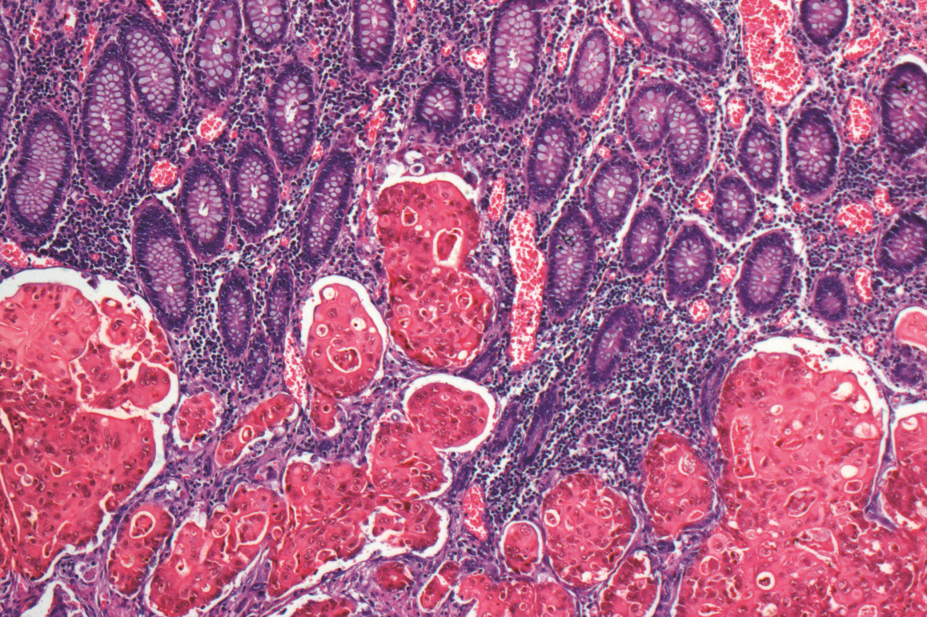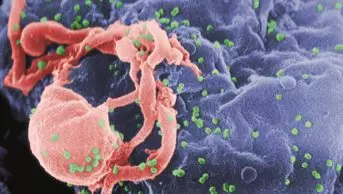
Steve Gschmeissner / Science Photo Library
Treating colorectal cancer with a trio of targeted drugs reduces the acquisition of drug resistance, in vitro research published in Oncogene shows (25 March 2019)[1]
.
Researchers treated a panel of 47 human colorectal cancer cell lines with combinations of MEK- PI3K- and ERK-inhibitors. These signalling pathways are frequently activated in colorectal tumours.
They found that treating cells with a MEK-PI3K-inhibitor combination led to a synergistic effect in cell growth inhibition. Cells that acquired resistance could be successfully treated with an ERK-PI3K regimen, but subsequently developed resistance to this treatment regimen too.
However, adding a low concentration of navitoclax, a BCL2-family inhibitor, to the MEK-PI3K regimen in previously untreated cells resulted in improved synergistic interaction between the therapies and blocked the acquisition of resistance.
The researchers said the findings indicated that triple-combination therapy may help to prevent resistance acquisition, rather than overcoming pre-existing resistance. Future studies should look into the questions of timing, dosage and tolerability, they added.
“It is possible that the addition of a third agent may be tolerated clinically in such a dosing regimen and provide the opportunity to overcome, or ameliorate, the major clinical problem of resistance to targeted therapies,” they concluded.
References
[1] Clarke P, Roe T, Swabey K et al. Dissecting mechanisms of resistance to targeted drug combination therapy in human colorectal cancer. Oncogene 2019; In press. doi: 10.1038/s41388-019-0780-z


